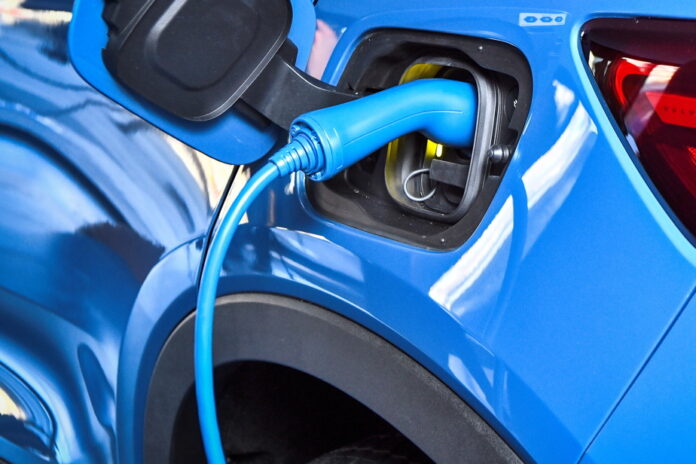(Washington) American motorists will finally be able to benefit from a subsidy if they buy an electric car partly produced abroad, according to the conditions for the allocation of aid from Joe Biden’s major climate plan (IRA) published on Friday.
These conditions for the allocation of the $7,500 subsidy for the purchase of a new electric vehicle were particularly awaited in Japan and Europe, which could only welcome the proposals published by the Treasury Department.
Initially planned at the beginning of the year and the subject of deep concern both on the part of the European Union (EU) and of the Asian allies of the United States – Japan and South Korea in the lead – these proposals were seen as a sign that the he Biden administration has taken into account the fears expressed by its partners.
However, within the framework of the law passed last summer, these subsidies had been designed both as a means of accelerating the conversion of Americans to electric vehicles and of supporting the development in the country of an industry in this area, by particular concerning the manufacture of batteries.
The plan, won with great struggle, in particular after tough negotiations with the Democratic senator of West Virginia (east) Joe Manchin, who had initially opposed it and whose voice was decisive, provided in fact that a preponderant part of the vehicle and the battery had to come from North America.
However, the conditions published by the Treasury Department, which will come into force in April, largely open up the source of both vehicles and the critical materials necessary for the batteries or the batteries themselves.
Put out for consultation before final validation, they also concern States bound by a free trade agreement, “a term which includes recently negotiated agreements relating to critical materials”, specified the Treasury in a press release.
A total of 21 countries are affected, including Japan, which on Monday signed an agreement specifically relating to “supply chains for critical minerals and batteries for electric vehicles”.
If not yet on the list, the EU hopes to quickly sign a similar deal, with negotiations officially kicking off during European Commission President Ursula von der Leyen’s visit to Washington on March 10.
Currently in the US capital, European Commissioner Margrethe Vestager reminded the press on Thursday that it was “difficult to fight global warming if we didn’t have zero-carbon industry everywhere” and not just in the United States.
“What we are trying to avoid is that the acceleration that we want to give in Europe is not potentially stopped by that which the United States wants to see,” Vestager insisted.
Questioned by AFP, the European Commission estimated on Friday that “the conditions confirmed the pragmatic approach chosen” and said that it was now focusing on “quickly finalizing an agreement on critical minerals in order to [s’] ensure that the EU was treated the same as other close partners” of the United States.
But Senator Manchin made no secret of his anger at the published terms. He said in a statement on Friday that they were “completely ignoring the IRA’s goal,” which was “to bring industries back to the United States and ensure [them] have safe and strong supply chains. “.
“American public money should not be used to support industrial jobs overseas. The consultation period is open and I invite every American to speak. My advice is simple: stop it, obey the law,” the Democratic senator added.
If they seem to be more open than anticipated, the conditions of attribution specify that they exclude on the other hand, as it was provided during the vote of the law, “suspicious entities”, a term which includes in particular the Chinese companies.
“Given China’s dominant position in the clean energy value chain, we need to work with our allies and partners to build a strong supply chain that can meet the expectations of the American consumer,” underlined a Treasury official, during a telephone exchange.
The idea is in line with the position defended by the European Commission, which has called for this approach to be extended beyond the G7 countries and to countries producing critical materials, which currently export mainly to China. Among these materials are nickel or cobalt, which are used in the manufacture of batteries.
Consultations on the conditions for awarding grants are open until April 17.















